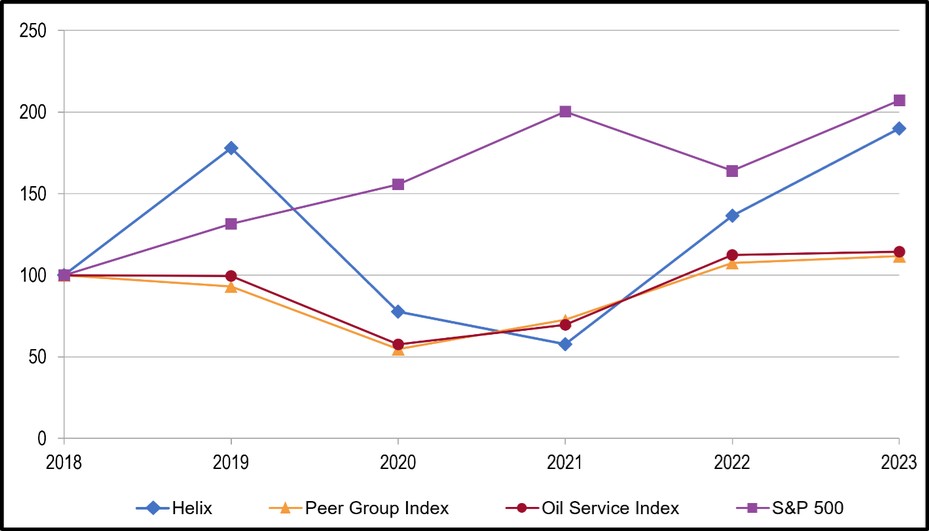Cybersecurity breaches or business system disruptions may adversely affect our business.
We rely on our information technology infrastructure and management information systems to operate and record almost every aspect of our business. This may include confidential or personal information belonging to us, our employees, customers, suppliers, or others. Similar to other companies, our systems and networks, and those of third parties with whom we do business, could be subject to cybersecurity breaches caused by, among other things, illegal hacking, insider threats, computer viruses, phishing, malware, ransomware, or acts of vandalism or terrorism, or acts perpetrated by criminals or nation-state actors. Furthermore, we may also experience increased cybersecurity risk as some of our onshore personnel may periodically work remotely.
In addition to our own systems and networks, we use third-party service providers to process certain data or information on our behalf. Due to applicable laws and regulations, we may be held responsible for cybersecurity incidents attributed to our service providers to the extent it relates to information we share with them. Although we seek to require that these service providers implement and maintain reasonable security measures, we cannot control third parties and cannot guarantee that a security breach will not occur in their systems or networks.
Despite our efforts to continually refine our procedures, educate our employees, and implement tools and security measures to protect against such cybersecurity risks, there can be no assurance that these measures will prevent unauthorized access or detect every type of attempt or attack. Our potential future upgrades, refinements, tools and measures may not be completely effective or result in the anticipated improvements, if at all, and may cause disruptions in our business operations. In addition, a cyberattack or security breach could go undetected for an extended period of time, and the ensuing investigation of the incident would take time to complete. During that period, we may not necessarily know the impact to our systems or networks, costs and actions required to fully remediate and our initial remediation efforts may not be successful, and the errors or actions could be repeated before they are fully contained and remediated. A breach or failure of our systems or networks, critical third-party systems on which we rely, or those of our customers or vendors, could result in an interruption in our operations, disruption to certain systems that are used to operate our vessels or other assets, unplanned capital expenditures, unauthorized publication of our confidential business or proprietary information, unauthorized release of customer, employee or third party data, theft or misappropriation of funds, violation of privacy or other laws, and exposure to litigation or indemnity claims including resulting from customer-imposed cybersecurity controls or other related contractual obligations. There could also be increased costs to detect, prevent, respond, or recover from cybersecurity incidents. Any such breach, or our delay or failure to make adequate or timely disclosures to the public, regulatory or law enforcement agencies or affected individuals following such an event, could have a material adverse effect on our business, reputation, financial position, results of operations and cash flows, and cause reputational damage.
Increasing legal and regulatory focus on data privacy and security issues could expose us to increased liability and operational changes and costs.
Along with our own data and information in the normal course of our business, we collect and retain certain data that is subject to specific laws and regulations. The compliant processing of this data domestically and transferring of this data across international borders continues to increase in complexity. This data is subject to regulation at various levels of government in many areas of our business and in jurisdictions across the world, and other jurisdictions may in the future issue further data privacy laws and regulations. The U.S. Federal Trade Commission recently adopted rules requiring the reporting of certain data breaches that may apply to our operations and those of our subsidiaries. As the number and complexities of such laws and regulations continue to increase, we will face increasingly complex compliance, monitoring, and control obligations. As the implementation, interpretation, and enforcement of such laws continues to progress and evolve, there may also be developments that amplify such risks. Any failure by us to comply with these laws and regulations, including as a result of a security or privacy breach, or otherwise, could expose us to litigation and enforcement, and result in significant penalties, fines, and other liabilities.
We may execute a strategic transaction that may not achieve intended results, could increase our debt or the number of our shares outstanding, or result in a change of control.
We have executed acquisitions and divestitures in the past, and in the future we may evaluate and potentially enter into additional strategic transactions. Any such transaction could be material to our business, could occur at any time and could take any number of forms, including, for example, an acquisition, merger, joint venture, strategic alliance, equity investment, divestiture or an asset sale.

